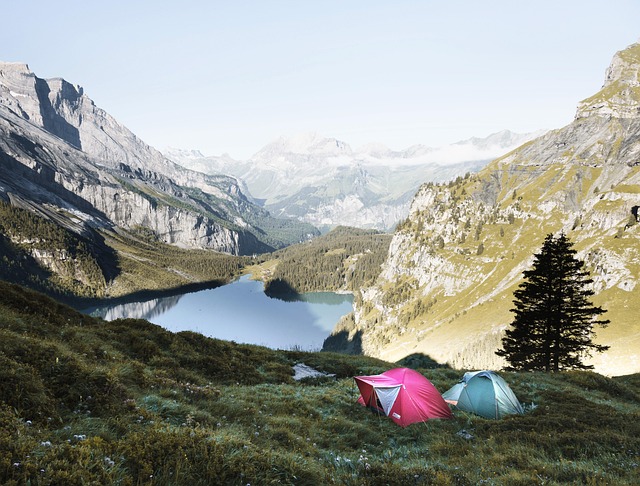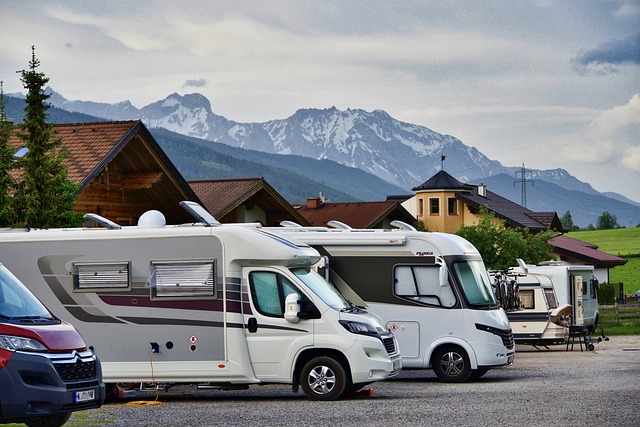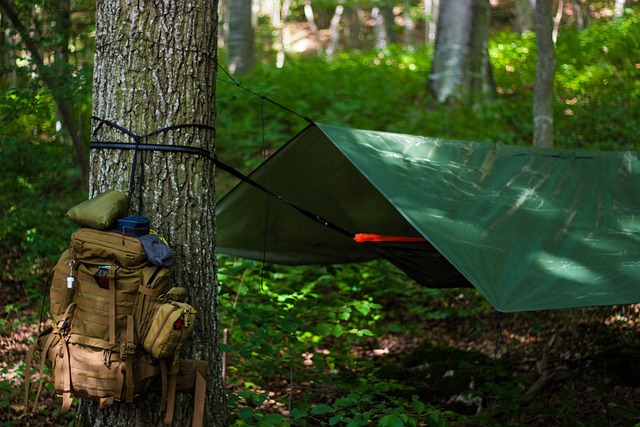Before visiting an RV park, understand and respect its unique regulations for vehicle parking, quiet hours, pets, fire safety, and designated areas. Choose a reputable park with robust security features, implement vigilance through sensors or cameras, and maintain your campsite clean to minimize wildlife attraction. Prioritize fire safety through inspections, proper disposal of flammable materials, staff training, drills, early detection systems, and proximity to fire stations. Maintain health and hygiene through tidiness, responsible waste disposal, handwashing, and open communication about hygiene habits. Ensure emergency preparedness by reviewing park procedures, maintaining contact lists, equipping your RV with safety items, staying informed about local hazards, and conducting RV system inspections.
Planning a trip to an RV park? Understanding safety tips and regulations is crucial for a peaceful and enjoyable stay. This comprehensive guide covers essential aspects of RV park safety, from navigating park regulations to fire safety protocols and emergency preparedness. By mastering these practices, campers can protect themselves, their loved ones, and their surroundings, ensuring a memorable and secure experience in these vibrant bustling communities.
- Understanding RV Park Regulations: What You Need to Know Before You Go
- Essential Safety Measures for Campers: Protecting Yourself and Your Surroundings
- Fire Safety in RV Parks: Prevention and Response Strategies
- Health and Hygiene Practices: Keeping Your Campsite Clean and Safe
- Emergency Preparedness: Being Proactive at RV Parks
Understanding RV Park Regulations: What You Need to Know Before You Go

Before heading to an RV park, it’s crucial to understand and respect the specific regulations unique to each location. These rules are designed for everyone’s safety and peace of mind. Common guidelines often include restrictions on vehicle parking, quiet hours, pet policies, and fire safety measures. Some parks may even have specific areas designated for different types of RVs based on size or requirements. Familiarizing yourself with these details ahead of time ensures a smooth and enjoyable stay, allowing you to make the most of your time in the great outdoors while adhering to the park’s guidelines.
Knowing the regulations is just as important as understanding your responsibilities as a guest. This includes being mindful of noise levels, especially during quiet hours, and respecting other campers’ space and privacy. Following fire safety protocols and keeping your site clean and tidy are also part of being a responsible RV park visitor. By doing so, you contribute to a safe, welcoming environment for all.
Essential Safety Measures for Campers: Protecting Yourself and Your Surroundings

When camping, ensuring your safety and securing your surroundings are paramount. Start by choosing a reputable RV park with well-lit paths, clear signage, and active security measures. Always register upon arrival, share your plans with others, and stay in well-populated areas, especially at night. Keep your campsite clean and organized to minimize attracting wildlife; store food securely in bear-resistant containers and never leave any valuables unattended.
Implementing basic safety precautions goes a long way in protecting yourself from unexpected hazards. Install motion sensors or security cameras for added vigilance, and be sure to familiarize yourself with the park’s emergency procedures. Remember, a safe camping experience is a enjoyable one, so take proactive measures to secure your RV parks surroundings and protect yourself from potential risks.
Fire Safety in RV Parks: Prevention and Response Strategies

Fire safety in RV parks is paramount, as these densely populated areas pose unique challenges for fire prevention and suppression. To mitigate risks, RV park managers should implement robust prevention strategies, such as regular inspection and maintenance of electrical systems to reduce the likelihood of sparks or short circuits, proper disposal of flammable materials like batteries and liquids, and ensuring all cooking appliances are in good working order. Additionally, clearly marked fire extinguishers should be readily accessible throughout the park.
In case a fire does occur, having well-rehearsed response strategies is crucial. All staff should be trained in basic fire safety procedures, including evacuation protocols and the use of emergency equipment. Regular drills will help ensure everyone knows their role during an actual emergency. Early detection systems like smoke alarms and carbon monoxide detectors can provide vital warning time. Moreover, RV parks should maintain a well-equipped fire station within close proximity for rapid response, as quick action significantly enhances the chances of minimizing damage and protecting both residents and property.
Health and Hygiene Practices: Keeping Your Campsite Clean and Safe

Maintaining good health and hygiene practices is essential for a safe and enjoyable camping experience, especially in shared spaces like RV parks. It’s crucial to understand that proper sanitation prevents the spread of diseases and ensures a clean environment for all campers. Start by keeping your campsite tidy; dispose of waste responsibly, including food scraps and personal items, in designated bins or recycling stations. Regularly wash your hands with soap and water, especially before eating and after using the restroom, to minimize the risk of contamination.
Encourage open communication within your group about hygiene habits. Make sure everyone understands the importance of covering coughs and sneezes, and staying home if they’re feeling unwell. By adopting these simple yet effective practices, campers can contribute to a healthy and safe atmosphere, fostering a pleasant experience for everyone in the RV park.
Emergency Preparedness: Being Proactive at RV Parks

At RV parks, emergency preparedness is a shared responsibility between park management and visitors. It’s crucial to understand that while RV parks are designed with safety in mind, being proactive can significantly enhance your peace of mind during your stay. Start by familiarizing yourself with the park’s emergency procedures and communication systems. Keep an up-to-date contact list of family, friends, and local emergency services within easy reach. Ensure your RV is equipped with a well-stocked first aid kit, fire extinguishers, and working smoke alarms. Regularly review and practice evacuation plans, especially if you’re new to the park or staying for an extended period.
Additionally, stay informed about any potential hazards specific to the area, such as wild animal activity or severe weather patterns. Keep your surroundings clear of debris and overhanging branches that could cause injury in case of an emergency. Regularly inspect and maintain your RV’s critical systems, including water, gas, and electrical lines, to minimize the risk of accidents or fires. By embracing these proactive measures, you contribute to a safer environment for everyone at the RV park, ensuring peace of mind during your outdoor adventure.
